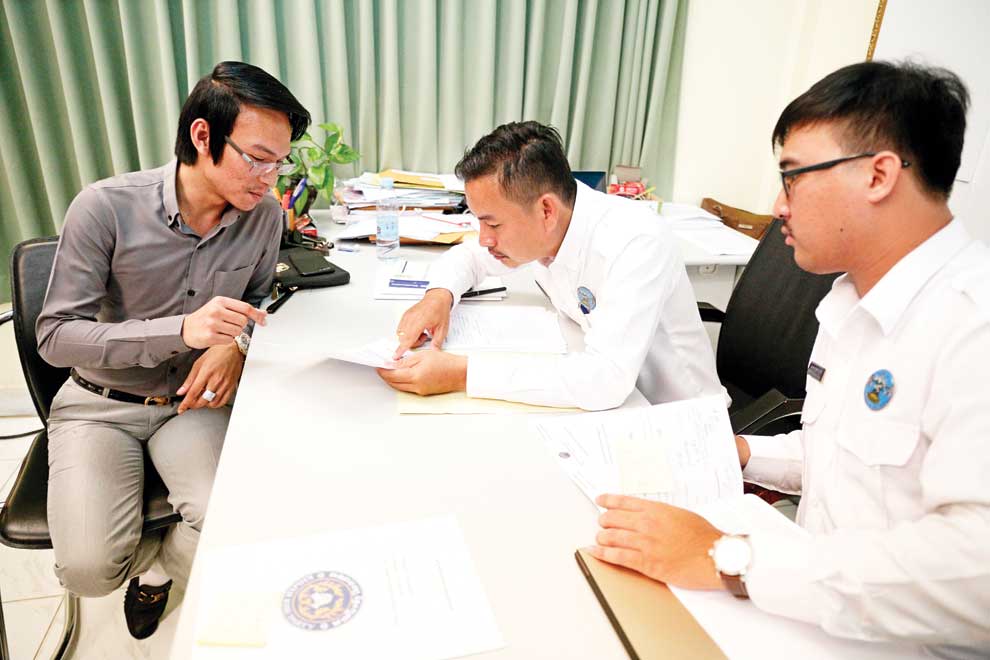
Khmer Rise Party leader Sok Sovan Vathana (left) submits election registration paperwork on Monday.
The National Election Committee closed the registration period for political parties on Monday, saying that 20 entities had filed their documents to take part in the July national elections, and that multiparty democracy was “growing well” despite arguments to the contrary by civil society and members of the now-dissolved opposition CNRP.
The NEC accepted most of the applicant parties on Monday. Despite the process starting on April 30, only four parties, the ruling CPP, the Cambodian Youth Party, the Cambodian National Party and the Khmer United Party were granted ballot access by Sunday.
Lenience was given to officials from the Khmer Rise Party, who showed up five minutes past the 5:30pm deadline but were nevertheless allowed to submit their paperwork.
Dim Sovannarom, spokesman for the NEC, said in a press conference after registration closed they will have seven days to review all the submitted documents. He noted that the participation of many political parties was a reflection of the development of democracy, comparing it favourably to the 2013 poll, when only eight parties made it to the ballot.
While some former CNRP officials have called for a boycott, Sovannarom said there is no law in the Kingdom requiring a certain turnout rate so the election will be valid regardless.
Former CNRP lawmaker Ou Chanrath believes the registration was part of a ruling party strategy. “It makes some frustrated or feel hopeless or excited with the big opportunity. That’s why they got many parties to participate, including ‘purchased’ ones. It can serve as false pride for the NEC after the election.”
‘Legitimacy questions unavoidable’
But CPP spokesman Sok Eysan denied his party assisted or funded the processing for any party but his own, stating: “The CNRP accusation is just jealousy; they cannot participate in the election.”
He also expressed congratulations to all the parties who completed registration. “It reflects our multiparty liberal democracy,” he said.
Preap Kol, head of Transparency International in Cambodia, said via email the pre-election period has drawn unfavourable global attention and is being viewed “negatively” by a majority of well-respected democratic countries.
“Without the participation of a credible opposition, the election will unavoidably suffer questions of legitimacy,” he said. “Certainly, if [a voter’s] favourite leaders are among those who cannot participate, they do not have a choice.”
While Transparency International Cambodia has sent observers to monitor past elections, yesterday Kol said there were many factors that make it hard to foresee TI Cambodia doing so in July’s poll. “But we will make a decision officially at our board meeting later this month,” he added.
Sam Rainsy on Monday expressed his belief that many of the registered parties were nothing but puppets for the CPP.
“The number participating, whether 20 or 200, is meaningless. What matters is their character and quality.”
He called 19 of the entities “firefly parties” because their presence would be fleeting, and that “their only role is to help Hun Sen’s CPP in its desperate attempt to secure legitimacy”.














